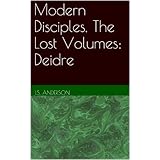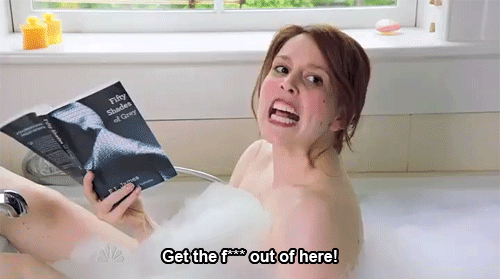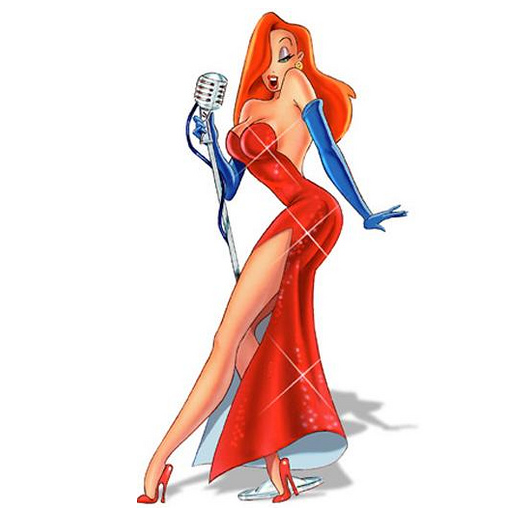Every time I see interviews with writers or read about them on blogs or
any other type of printed media, they always have to address the same
question: What advise do you have for young writers? They always answer
with a mixture of the “try harder” pep talk and some tips on how to
improve writing. Having published three novels and going through the
trials and tribulations that come with that, I can tell you that they
are selling the young writers short with that answer.
I am not saying
that improving your writing and perseverance are not necessary. Those
are two very solid principles that need to be adopted. My main concern
is some key points neglected by authors in these interviews. To be fair,
most interviews you read are from the big name authors that have little
to worry about at this point in their careers. The publishing world is a
lot different from when Stephen King or Richard Patterson started. When
they first got started, they wrote their manuscripts, sent them out to
publishers, kept doing this until a publisher decided to buy their
manuscript and publish. The process is a lot more complicated these
days.
Today, new authors need a skill they did not in the days before
the internet. They must have a working knowledge of marketing. Even if
you go the traditional route of sending off manuscripts until one
publisher understands what you are doing or can find a way to turn the
story into something they consider marketable. Authors today are
expected to set up their own blogs, have websites for their books, and
have a presence in the social networking scene. The Stephen Kings, and
J.K. Rowlings of the world can hire other people to do these things, but
they still have to be done.
Knowing all this, I decided to do this
entry to give new writers advice that you will not hear in normal
circles. Please remember that I am basing this list on my own personal
experiences so other people may have different opinions. I think a wise
thing to do is get different perspectives on everything you do.
1. Learn how the language works.
This
may seem obvious, but you would be amazed at how many people start
writing without a solid foundation of how to. If you are serious about
being a writer and want to make your living that way, you have to know
sentence structure, punctuation, know how much dialogue is appropriate,
and for God’s sake, do not use texting language. Also, learn the
difference between passive and active language, and use active as much
as possible.
2. Become a master of editing, and then find someone to help you.
Spell
check is a great tool. Do not rely on it. One problem I have is that I
keep interchanging the words they and the. Spell check will not find
things like this. Editing is a skill you must learn, practice, and hone
to perfection. No matter how good you get though, it is still imperative
that you get a second pair of eyes to keep you honest. It is always
hardest to critique your own work. Find somebody you trust to read your
manuscript and find things that you could not. One thing I do is print
out the whole manuscript on paper so that I can read the hard copy and
write out corrections. Do not, I repeat, DO NOT send your manuscript out
to a professional script editor and pay for them to do it. If you want a
solid example of what happens when you do this, buy my first two books
Modern Disciples Volumes 1 and 2. This may sound like a cheap plug, but
when you read them, you will see what I mean. I sent Volume 1 to a
professional editor. Volume 2 I edited myself, then my father edited it,
and I edited it again. Take it from a guy who had to pay over $1000 to
learn the hard way. Do the editing yourself.
3. Know the difference between traditional publishing and self-publishing.
Let
me give you a brief summary of the two. Traditional publishing is
finishing your manuscript, sending it off to a publisher, getting many
rejections until one finally takes it. These days you have to send it to
agents until one is willing to take you on, and then they send it to
publishers until one takes it. Self-publishing is you send your
manuscript to a company that does this, and you pay them to publish it
for you. You can also just upload it to amazon.com and just sell it in
E-book for if you want to do it that way. There are advantages and
disadvantages to both. I will include a link to a video that explains
them both very well. When you do learn the differences between them, you
will have to make a decision as to which one is better for you.
4. Learn about marketing, learn about marketing, and then learn about marketing.
As
authors, we do not want to worry about setting up websites, author
profiles, and several different social networks. The cyber age no longer
allows us to rest on our morals. We have to be good writers, and good
marketers, or know people who are good marketers willing to help for a
reasonable fee. If you are planning to go to college, choose marketing
as one of your courses of study. You do not have to make it your major,
but do not take just one class. At the very least, make marketing your
minor. If you are not planning on college, there are plenty of resources
on marketing books. You can start on Youtube. There are also plenty of
books on how to do market your book. Get an account on Goodreads and
make as many friends as possible.
5. And yes, read.
Even
if you are lucky enough to take some formal classes on the art of
creative writing, there is no substitute for experiencing the real thing
yourself. For writers, this entails reading books yourself. When you do
read them though, seriously think about what you find good and bad
about the book. This will help you develop your own style. Another
important aspect is to move out of your comfort zone now and again. Read
something other than what you usually read. Read some independently
published books also.
I hope I have given you all something to think
about for your future endeavors. If you find this discouraging, that
shows wisdom on your part. If you really do want to be a writer, take
what I have said to heart, but do not let it weigh on you. Please leave a
comment if you have one.
Here is the link:
http://www.youtube.com/watch?v=zkYFjT...









 She is the beautiful mean girl that takes her game up about ten notches and kills a good portion of the class before she is taken out. Two students have been through the program before the story takes place. One is Shuya’s ally; the other is the most feared male antagonist who dies last. In the book, it is his first tournament. All of these enemies are far more threatening than anything the Hunger Games has to offer. The point goes to Battle Royale.
She is the beautiful mean girl that takes her game up about ten notches and kills a good portion of the class before she is taken out. Two students have been through the program before the story takes place. One is Shuya’s ally; the other is the most feared male antagonist who dies last. In the book, it is his first tournament. All of these enemies are far more threatening than anything the Hunger Games has to offer. The point goes to Battle Royale.




 When you Google for lists of top “Hot animated women,” the same character keeps topping those lists. Jessica Rabbit has not only become a staple of what men find attractive, but her name has become a literal term for female beauty. We have all met these women who have been referred to by their peers as a “Jessica Rabbit.”
When you Google for lists of top “Hot animated women,” the same character keeps topping those lists. Jessica Rabbit has not only become a staple of what men find attractive, but her name has become a literal term for female beauty. We have all met these women who have been referred to by their peers as a “Jessica Rabbit.”  So what is the appeal of Christian Grey? He is a twenty-seven year old multi-billionaire with his own company to start with. He exudes power and control in every aspect of his life. His love interest is constantly calling him “a Greek god.” In addition to his overwhelming physical appearance, he wears cologne she likes and launders his clothes with the correct detergent. Despite all of his traits that make him the ideal alpha male, he still has a flaw that his woman gets to fix. A “crack whore” mother that left him with a pension to hurt women that look like her raised Christian.
Jessica is an over exaggeration of the ideal female body type. Huge hair, legs long enough to make up 60% of her body, massive lips, a waist thin enough to turn any corset into a swimming pool, and yes, breasts that looked like they will not just burst out of her dress but throw the whole thing off of her. Her dress exposes different parts of her body depending on how she stands and how she moves. She is also a singer, and when she sings she has no shame in letting her sex appeal fill the room. Her one balancing factor is that despite her strength and resolve, she still needs protection from the bad guys.
From these two characters, we can come to the standard conclusion that women seem to care primarily about the cerebral while considering the physical. Men primarily focus on physical while considering the cerebral. Is there anything though that connects these two characters? Is there any common ground women and men can meet on?
Both of these characters have one thing in common: they both seem to be in a relationship with somebody who is beneath their station. Christian is in love with a middle class girl fresh out of collage with self-esteem issues and apparently eyes that are too big for her head. Jessica is married to an annoying, high-pitched, cartoon rabbit. Anybody on the outside of these relationships would look on them with confusion. Does this detract or enhance their appeal?
We all fantasize about being with the ideal person. We all have celebrity crushes. We all have characters from books, television, or movies that we favor purely because of their sex appeal. When we see ideal forms though settling for people that we can relate to, or at least do not seem capable of getting the ideal forms, it gives us a sense of hope. “If Ana can get Christian, maybe I can get my own Christian.” “If Jessica Rabbit will marry Roger, maybe the prom queen will go out with me.” One could argue that this is a false sense of hope, and usually it is. The fact remains that in order to be in a relationship with somebody, that person has to agree to it. Maybe despite physical appearance, ability to provide, and potential for empathy, the most appealing quality a person can have is acceptance of our own imperfect selves.
So what is the appeal of Christian Grey? He is a twenty-seven year old multi-billionaire with his own company to start with. He exudes power and control in every aspect of his life. His love interest is constantly calling him “a Greek god.” In addition to his overwhelming physical appearance, he wears cologne she likes and launders his clothes with the correct detergent. Despite all of his traits that make him the ideal alpha male, he still has a flaw that his woman gets to fix. A “crack whore” mother that left him with a pension to hurt women that look like her raised Christian.
Jessica is an over exaggeration of the ideal female body type. Huge hair, legs long enough to make up 60% of her body, massive lips, a waist thin enough to turn any corset into a swimming pool, and yes, breasts that looked like they will not just burst out of her dress but throw the whole thing off of her. Her dress exposes different parts of her body depending on how she stands and how she moves. She is also a singer, and when she sings she has no shame in letting her sex appeal fill the room. Her one balancing factor is that despite her strength and resolve, she still needs protection from the bad guys.
From these two characters, we can come to the standard conclusion that women seem to care primarily about the cerebral while considering the physical. Men primarily focus on physical while considering the cerebral. Is there anything though that connects these two characters? Is there any common ground women and men can meet on?
Both of these characters have one thing in common: they both seem to be in a relationship with somebody who is beneath their station. Christian is in love with a middle class girl fresh out of collage with self-esteem issues and apparently eyes that are too big for her head. Jessica is married to an annoying, high-pitched, cartoon rabbit. Anybody on the outside of these relationships would look on them with confusion. Does this detract or enhance their appeal?
We all fantasize about being with the ideal person. We all have celebrity crushes. We all have characters from books, television, or movies that we favor purely because of their sex appeal. When we see ideal forms though settling for people that we can relate to, or at least do not seem capable of getting the ideal forms, it gives us a sense of hope. “If Ana can get Christian, maybe I can get my own Christian.” “If Jessica Rabbit will marry Roger, maybe the prom queen will go out with me.” One could argue that this is a false sense of hope, and usually it is. The fact remains that in order to be in a relationship with somebody, that person has to agree to it. Maybe despite physical appearance, ability to provide, and potential for empathy, the most appealing quality a person can have is acceptance of our own imperfect selves.